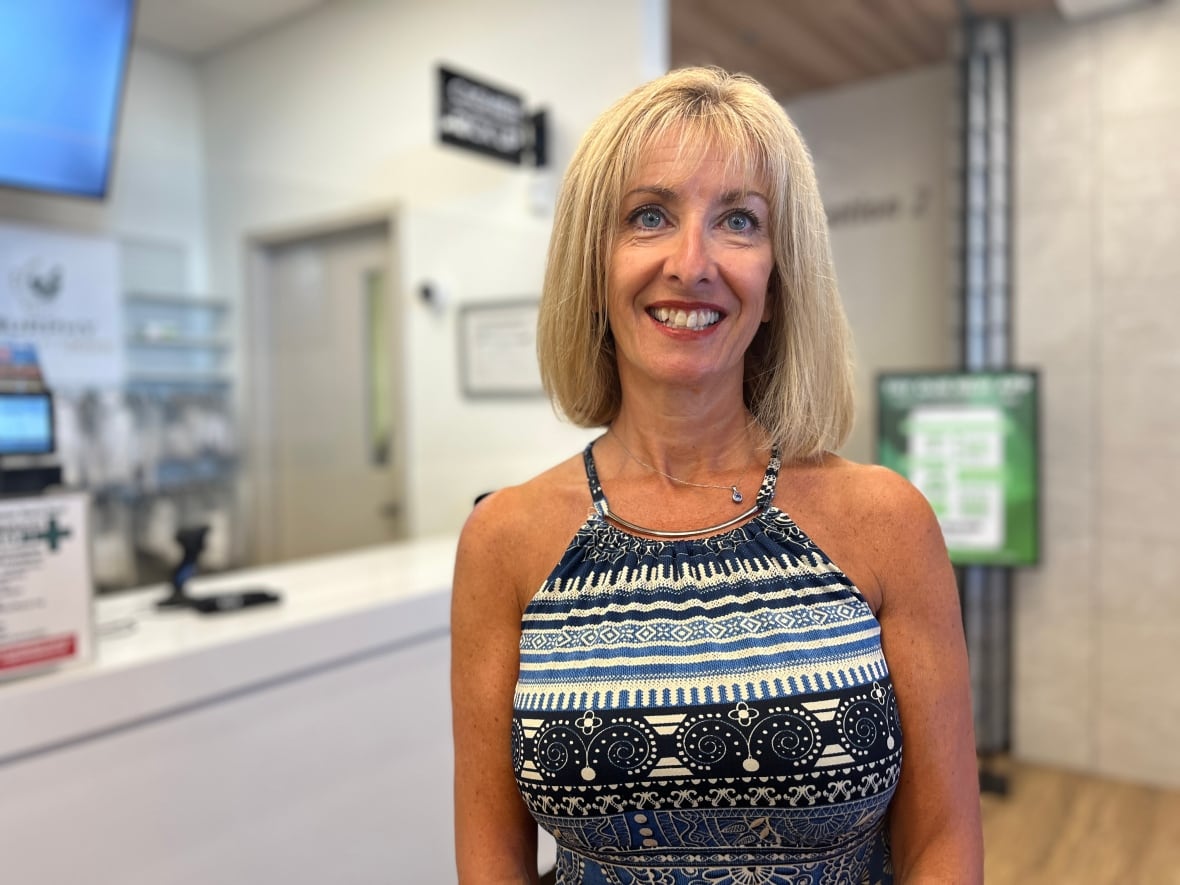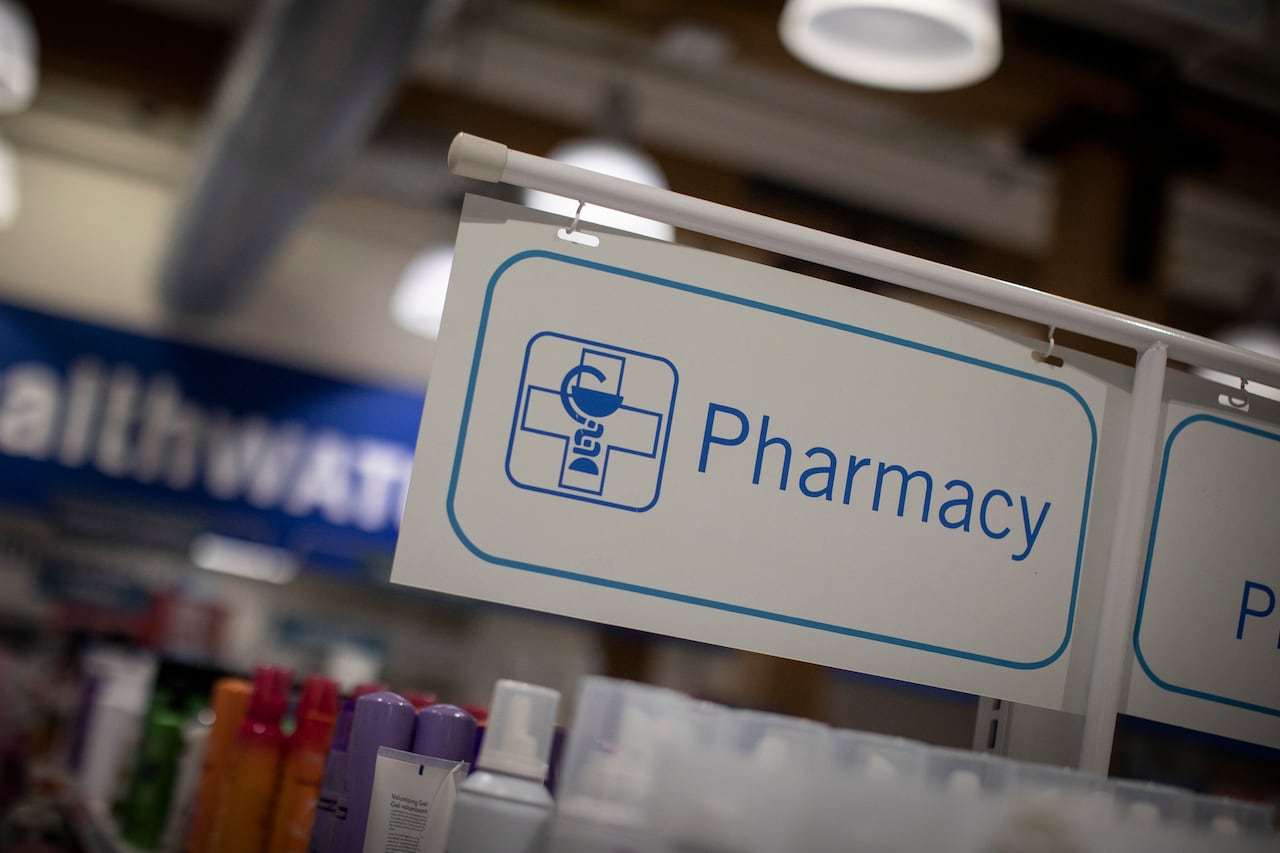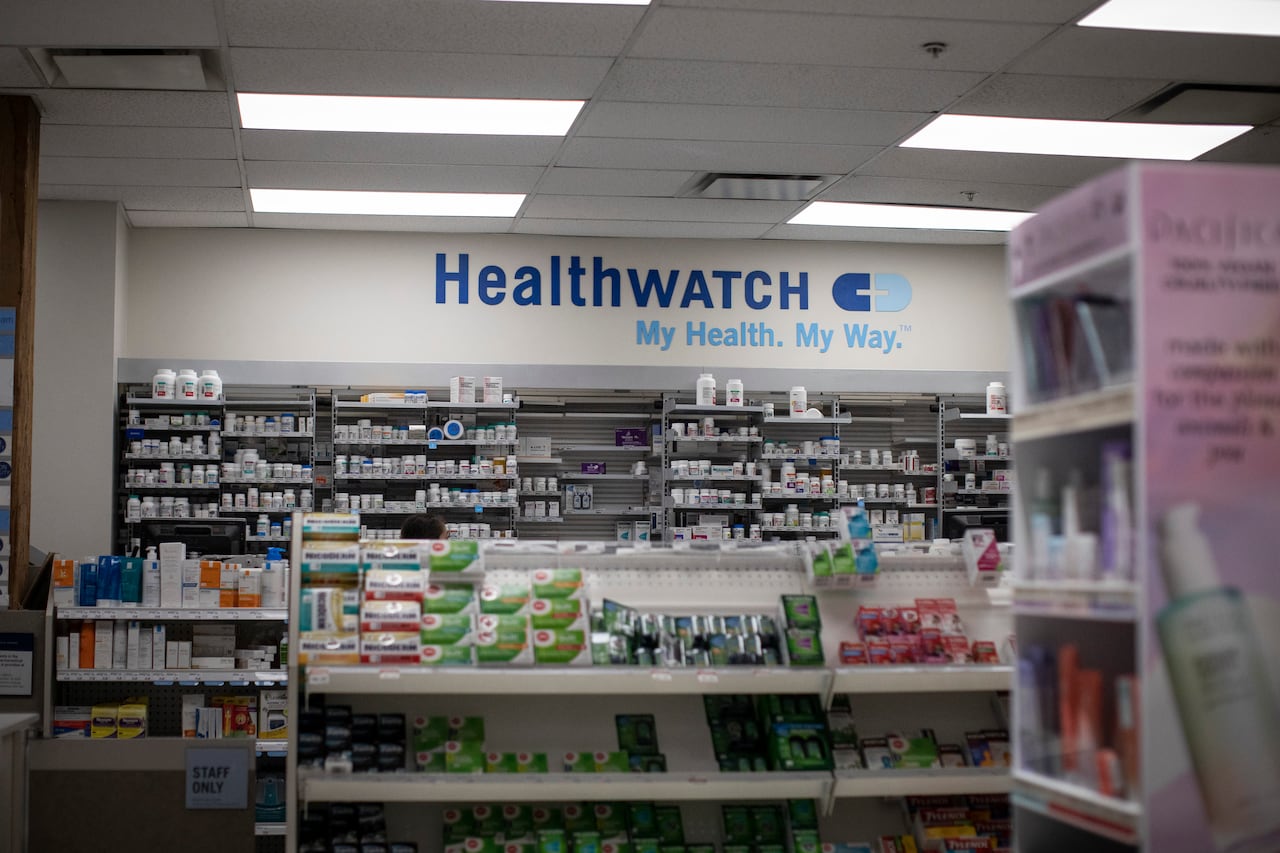As pharmacists took on an even greater role in the Island’s health-care system after the COVID-19 pandemic, it’s lead to some community pharmacies in the province taking a dramatic hit in staffing, according to the P.E.I. Pharmacists Association.
Erin MacKenzie, the association’s executive director, said there was already a shortage of workers, but that in recent years many pharmacists working in the private sector have started taking jobs elsewhere.
That has forced some community pharmacies to reduce hours, or worse: to close altogether.
“Within less than a year we did have three pharmacies in communities close, so certainly that is concerning,” MacKenzie said.
“In smaller communities, often the community pharmacy or local pharmacy is the only health-care provider they have access to.”
 MacKenzie says pharmacists and technician vacancies are projected to double in the coming years as more take jobs outside of P.E.I., with the provincial government, retire or outright quit. (Nicola MacLeod/CBC)
MacKenzie says pharmacists and technician vacancies are projected to double in the coming years as more take jobs outside of P.E.I., with the provincial government, retire or outright quit. (Nicola MacLeod/CBC)
The outlook is bleak, too.
MacKenzie said an internal survey revealed that job vacancies for pharmacists and technicians are projected to double in the coming years as more take jobs outside of P.E.I., with the provincial government, retire or outright quit.
“The people left on-site are feeling the strain,” she said.
“The need is only growing…. There’s many reasons for that, but we know over the next few years we need more pharmacy staff, pharmacists and pharmacy technicians.”
High registration doesn’t paint full picture
According to data from the P.E.I. College of Pharmacy, the number of pharmacists and technicians registered on the Island has jumped over the past decade.
In 2016-17, there were 175 pharmacists and 13 technicians registered on P.E.I.. Compare that to 2024-25, and there were 240 pharmacists and 80 technicians.
The theme of the past year, if I could put a word on it, has been shortages.- Greg Gill, former president of P.E.I. College of Pharmacy
At the same time, there’s been a sizable uptick in the number of internationally educated pharmacists — 44 registered on P.E.I. just last year.
But the number of registrations and those actually working in the province aren’t exactly the same. The registration data also isn’t broken down by how many pharmacists are working in community pharmacies versus with Health P.E.I. and within the hospital system.
CBC News has asked Health P.E.I. for data on historic pharmacy staffing levels in public institutions, as well as wage ranges compared to the private sector.
In an email, the college said since April 1, 2023, roughly 90 internationally educated pharmacists completed the registration process, but that “there are only a small number still practicing in P.E.I. as the majority have moved to other jurisdictions….
“As a result, the overall number of pharmacists has increased but the number of pharmacists who are employed and practicing in P.E.I. is smaller.”
 According to data from the P.E.I. College of Pharmacy, the number of pharmacists and technicians registered on the Island has jumped over the past decade — but that number might not tell the whole story. (Ben Nelms/CBC)
According to data from the P.E.I. College of Pharmacy, the number of pharmacists and technicians registered on the Island has jumped over the past decade — but that number might not tell the whole story. (Ben Nelms/CBC)
As far as pharmacy graduates coming to work on P.E.I, the college said the number of Dalhousie and Memorial university students who come to work in this province ranges between two and eight each year.
Prince Edward Island and New Brunswick are the only two provinces in Canada without a school of pharmacy.
In the college’s annual report, published online last week, former president Greg Gill said pharmacists are “proving their worth” as health-care professionals, but strain is ever-present.
“The theme of the past year, if I could put a word on it, has been shortages,” Gill wrote.
“In my role, I have seen the closures of pharmacies and have been asked to manage two pharmacies for several months due to the lack of available and experienced staff.”
‘We’re going to need some help’
The overall picture across the country doesn’t look much better either.
The Canadian Pharmacists Association (CPhA) said in a statement that what’s happening in P.E.I. “reflects the workforce pressures we’re seeing across Canada.”
“Our own research, along with federal labour data and a recent Health Canada report, all point to a growing shortage of pharmacists — especially in rural and remote areas,” the statement reads.
It said the country is short about 1,700 pharmacists, and that without action that number could more than double by 2034 to around 3,300.
The association’s 2023 study concluded that New Brunswick needed to double its pharmacist and pharmacy technician workforce over the next decade due to factors including retirements, an aging population and changes in the scope of practice.
That province is a microcosm showing where the country is headed, the CPhA said: “While the study focused on New Brunswick, the same trend is happening across the country.”
 The CPhA says pharmacy has the lowest projected growth rate among all health professions studied at just 1.1 per cent per year. (Ben Nelms/CBC)
The CPhA says pharmacy has the lowest projected growth rate among all health professions studied at just 1.1 per cent per year. (Ben Nelms/CBC)
The CPhA added that pharmacy has the lowest projected growth rate among all health professions studied — just 1.1 per cent per year.
“Canada trains pharmacists through 11 programs nationwide, with about 1,500 seats — a number that’s barely grown in five years,” the statement said, “and is expected to increase only 1–2 per cent over the next decade.”
MacKenzie said hiring graduates from the nearly dozen pharmacy schools in Canada, as well as recruiting internationally trained workers, needs to be done at a similar level to P.E.I.’s hunt for doctors.
“We need to work with government and be part of the solution in attracting, retaining, recruiting not only in neighbouring provinces and at universities in the region but right across the country,” she said.
“We are going to be looking for people who are graduating from programs off-Island, so it’s going to be very important to recruit those folks from Prince Edward Island back here, and to do that we’re going to need some help.”

